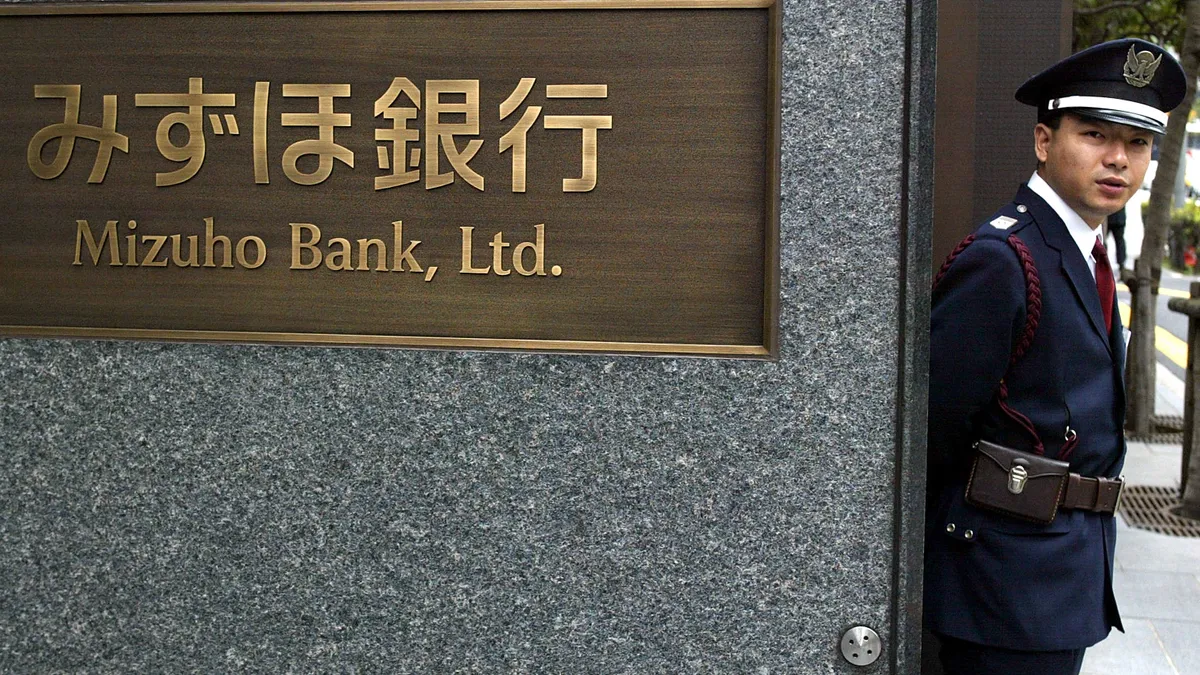The collateral damage from persistent IT issues at Japan’s third-largest bank has prompted Mizuho Financial Group CEO Tatsufumi Sakai to resign effective April 1.
The move comes after Japan’s Financial Services Agency (FSA) handed the bank an improvement order and the country’s ministry of finance issued a corrective action order. The bank on Friday laid out a six-page course of action to address both.
"We take it extremely seriously and regret what happened," Sakai said Friday, according to Bloomberg. "I need to take responsibility by resigning."
Sakai is at least the third executive to step down in connection to a spate of IT troubles that began in February, when thousands of bank cards became stuck inside the bank’s ATMs. The next month, 300 foreign-currency transfers from some of the bank’s corporate clients were delayed by several hours because of a glitch in data-center hardware.
Koji Fujiwara, CEO of Mizuho’s bank unit, announced in June he would resign — a move that also takes effect April 1. Satoshi Ishii, the bank’s IT head, also resigned, effective the same day. Chairman Yasuhiro Sato will step down April 1, but has opted to remain on the bank’s board until June, when new members are chosen.
"We deeply apologize for the inconvenience and concern we have caused to our customers and society by allowing these system failures to occur repeatedly in a short period of time and, as a consequence, failing to adequately fulfill our role in facilitating smooth settlements and failing to adequately ensure thorough operations under the Foreign Exchange and Foreign Trade Act of Japan," Mizuho said in a statement, according to Computer Weekly.
The FSA had hoped to wrap up its inspection of the IT issues this summer, but new incidents in August and September — there have been eight so far this year, Bloomberg reported — forced the regulator to extend the probe.
In its order last week, the FSA said Mizuho was not sufficiently aware of the incidents’ impact on its clients, adding that the bank did not give enough heed to client-facing businesses.
Mizuho management’s responsibility "is grave," the FSA said in the statement, according to Bloomberg. The company "failed to serve their role as a financial institution," the regulator added.
The FSA noted a history of similar IT failures at the bank — particularly, incidents in 2002 and 2011, each of which warranted previous orders from the FSA — and concluded Mizuho doesn’t have the capacity to rectify that pattern.
The bank has, however, invested $3.6 billion in 2019 to overhaul its IT systems, according to Computer Weekly.
Sakai has led Mizuho since 2018, and has leaned into an effort to recast its corporate culture. He poured resources into segments the bank saw as opportunities for growth, and instituted a cost-cutting regimen that led to an uptick in profits and the bank’s first dividend boost in seven years.
Mizuho has said it would accelerate efforts to find Sakai’s replacement. Senior Mizuho officials told Bloomberg that outside directors moved to install Sakai as the board’s chairman — even after he’d committed to resigning as the group’s CEO.














